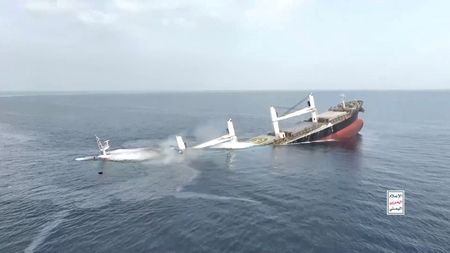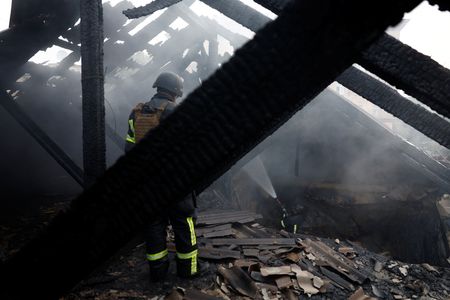SINGAPORE (Reuters) -There were 95 piracy and armed robberies against ships in Asia from January to June this year, an 83% increase compared to the same period last year, according to data from the Information Sharing Centre of intergovernmental anti-piracy group ReCAAP.
Most of the incidents occurred in the Straits of Malacca and Singapore, which the watchdog flagged as an area of concern. There were 80 incidents in these waters over the period, compared to 21 in the first half of 2024.
Most incidents in the Straits of Malacca and Singapore were not severe, with no ship crew injured 90% of the time. Nine in 10 incidents happened after dark, said the information centre for ReCAAP, which stands for the Regional Cooperation Agreement on Combating Piracy and Armed Robbery against Ships in Asia.
The group said there was no evidence to suggest that ships of a particular flag were being targeted, and that incidents tended to occur on ships that were slow moving and had crew who were less vigilant.
“Perpetrators take grave risk to their lives during attacks on the ships to steal low value items.
This indicates that socioeconomic conditions are driving the perpetrators to commit crimes,” said the anti-piracy group.
In half of the 80 cases in the two Southeast Asian waterways, nothing was stolen, while in 29% of the incidents, the attackers took engine spares.
About half of the attacks in the Straits of Malacca and Singapore were on bulk carriers and a quarter on tankers, the information centre said.
“In most incidents, the criminals boarded ships that were ill-prepared, had low freeboard, and manoeuvred at slow speed in restricted areas of the Straits of Malacca and Singapore,” the ReCAAP centre said, referring to narrow parts of the straits where there is congestion and less space to manoeuvre.
Authorities in the region should increase their presence in places where piracy and armed robberies repeatedly occur while crews need to be more vigilant, said Vijay D Chafekar, executive director of ReCAAP Information Sharing Centre.
“Shipmasters transiting the areas of concern need to increase watchkeeping on deck during hours of darkness and install preventive measures to deter unauthorised boarding,” Chafekar said.
(Reporting by Xinghui Kok; Editing by Tom Hogue and Kate Mayberry)









